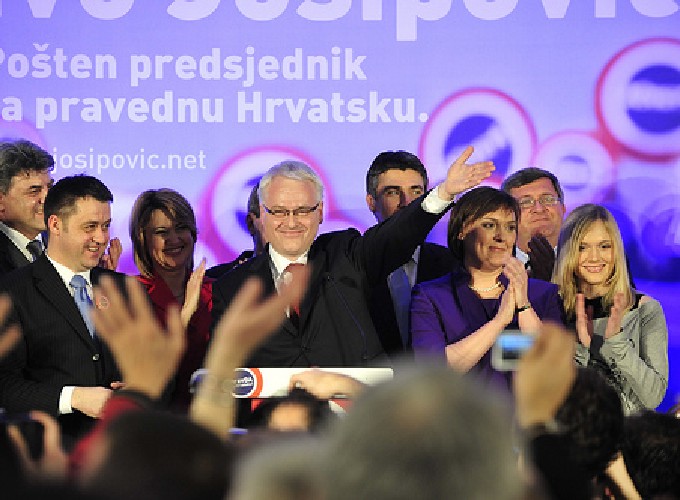Blog post published by presidential-power.com
On December 1, Croatia held a referendum on whether the constitution should include a definition of marriage as a “union between a woman and a man”. Although the president and the government urged the population to vote no, the proposal was supported by almost two-thirds of the people who turned out to vote. As a result, the Croatian Constitution will be amended, effectively banning same-sex marriage.
The referendum was called as a result of a civil initiative and is the first of this type to be organized in Croatia.
According to the Croatian Constitution, the Parliament must call a referendum when so requested by ten percent of all voters (art. 87). A petition signed by 750,000 citizens calling for the organization of a referendum on the amendment of the constitution was presented to the Parliament by a conservative group called “In the Name of the Family” in June 2013. As a result, although the centre-left government enjoys majority support, the parliament voted to organise the referendum on 8 November 2013.
The popular initiative was strongly backed by the Catholic Church and came as a reaction to the centre-left government’s plans to introduce a Life Partnership Act that would grant same-sex couples equal rights to married couples.
President Josipović, a former member of the Social Democratic Party (SDP), actively campaigned against the referendum and expressed his decision to vote against it. He called the referendum unnecessary and urged the population to reject a constitutional amendment that would discriminate against minorities.
Similarly, PM Milanović, the SDP leader, along with other cabinet members advised the population to vote no. The prime minister characterised the referendum as pointless, given the government’s determination to pass the bill on common law partnerships. Thus, the prime minister assured the public opinion that the result of the referendum would not have negative consequences for same-sex couples.
Nevertheless, the constitutional amendment received the support of almost 65 percent of the people who took part in the vote. Although the turnout was less than 38 percent, the referendum was declared valid, as the Constitution does not set a minimum participation threshold. President Josipović confirmed that the Constitution will be amended according to the referendum results. He nevertheless endorsed the government’s plans to introduce legislation that recognises same-sex couples living together as life partners with legal rights.
The results of the referendum may be interpreted as an increase in the support for the centre-right opposition. The Croatian Democratic Union (HDZ), which campaigned for a Yes vote, has been in opposition since 2011, when it lost the general election to the centre-left coalition led by the SDP. However, a public opinion survey conducted in November 2013 showed that SDP maintains its position as the strongest Croatian party. The SDP also controls 61 seats out of the 151-seat parliament. Together with its coalition partners, SDP can count on the support of a 80-seat parliamentary majority to pass the bill on life partnerships. The survey also indicates that, one year before the next presidential election, Ivo Josipović remains the most popular politician in the country.


